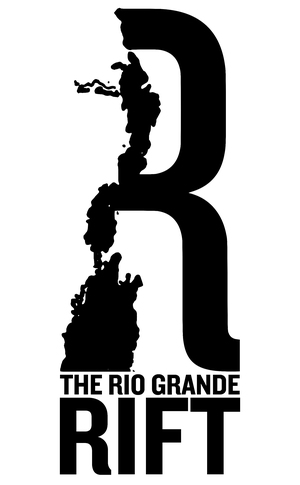A group of El Pasoans has formed a bilingual publication team called The Rio Grande Rift, which seeks to share the untold stories of the El Paso and Juárez region.
“I’ve lived and studied in El Paso for a long time,” Editor Mari Gomez said. “I’ve always felt that there’s a gap in the media of El Paso. What I wanted was to create a magazine that developed the writer’s voice that had an aesthetic that had a different voice. We were interested in telling stories and looking into the communities in El Paso on a deeper level.”
Founded this past summer and funded as a Kickstarter project, The Rio Grande Rift plans to release their first issue in January 2015. According to their website, the publication “explores the fringes, the underbelly, the awkward, and the random.” The description of the Kickstarter project stated that the writings include personal essays, book reviews, event reviews, personal interviews and profiles, as well as musings on national and cultural issues and ideas.
“(Our biggest challenge has been) to convince people that a print issue is still relevant. When everything is online and fast-paced, it’s like trying to go back in time for some people,” Gomez said. “It’s a different art form and a beautiful kind of artifact, which ties immediately into raising funds for something that people may not think is relevant.”
The Rio Grande Rift wishes to differentiate themselves from other El Paso publications through forms of writing that aren’t commonly seen. The coming 60-page print issue features writings pertaining to the history of mixed martial arts, the Rescue Mission of El Paso, Segundo Barrio, an outlook on immigration in the media and more.
“The Rio Grande Rift was simply a logical extension of an aesthetic, one that is uncompromising and self-sustaining. The Rift allows us to beholden to no one but the readers and ourselves,” writer Ryan Perry said. “There is a serious cognitive dissonance in El Paso society. Simply reading the standard media leaves a void that subsequently gives El Paso a myopic presentation. We seek the other parts, and in filling them with interesting commentary and thoughtful insights, expand the panorama that is El Paso.”
The ambitions of The Rio Grande Rift have inspired UTEP students who also wish to pursue careers in writing after seeing their struggles pay off in the Sun City.
“The power is in the people and the politics we address, so it is important we understand what makes each place distinct, and we can do this by observing artwork, poetry and music,” English and American literature major Kristopher Covarrubias said. “Our perspective should never be guided by generalizations and stereotypes, and in my opinion, once a certain culture is observed through the eyes of a human being seeking the common thread of poetic harmony, then one can embrace humanity and celebrate cultural differences.”
The Rift’s writers also feature numerous writings on their website, other than those exclusive to the print issues.
“The border town is rich with history and has a significant place in the imagination of the common passers-by, who must deal with the reality of churches hundreds of years old and generations of families who have been here just as long,” Covarrubias said.
To purchase a print issue, contact The Rift via their website or get more information about The Rio Grande Rift, please visit www.theriogranderift.com or email at [email protected].
Joseph Esposito may be reached at [email protected]






